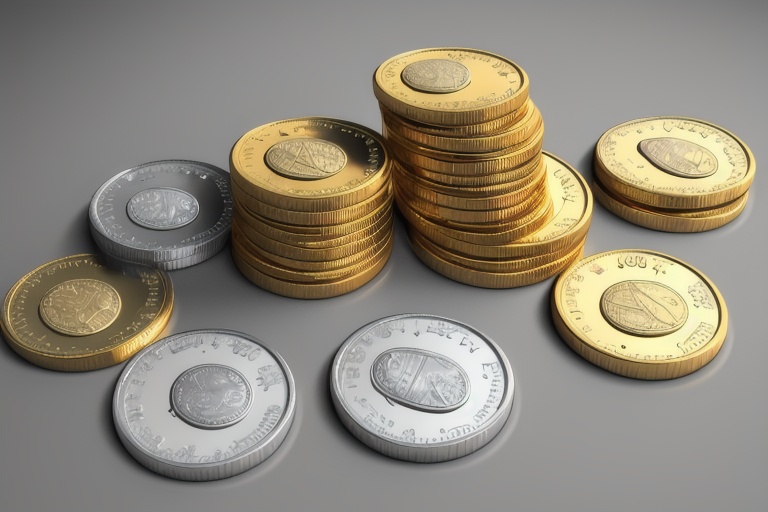Selling your coin collection can seem daunting at first, with various options each having its own pros and cons. Understanding each possible avenue, from dealing with local coin shops to navigating the online marketplace, will equip you with the knowledge to make the best choices for your specific situation. Let's dive into the world of coin selling and explore how you can maximize profits while enjoying the process.
Selling your coin collection can seem daunting at first, with various options each having its own pros and cons. Understanding each possible avenue, from dealing with local coin shops to navigating the online marketplace, will equip you with the knowledge to make the best choices for your specific situation. Let's dive into the world of coin selling and explore how you can maximize profits while enjoying the process.
Selling to Local Dealers
Local coin dealers are often the first stop for collectors looking to sell. It's a straightforward process: you bring in your coins, get an offer, and if you accept, you leave with payment in hand. The main benefit here is convenience, but it's worth remembering that dealers are running a business. They need to purchase at a price that allows for resale profit, which means you might not get top dollar. It's important to research and find a trusted dealer who will give you a fair valuation. Engage with multiple shops to better understand the market value before making a decision.
Coin Shows
Coin shows gather enthusiasts and professionals in one place, providing a broader audience for your collection. You can get multiple evaluative perspectives and, possibly, better offers for your coins. Do keep in mind that attending these events may incur travel and admission costs, so factor these into your potential profit. The ANA Events Directory can be a useful resource to find coin shows in your area.
Auction Houses
For exceptional or high-value coins, auction houses might be your best bet. They can generate competition among buyers, which can drive up the final price of your coins. While the potential for a higher sale price is significant, this method does involve auction fees and a wait time for the actual sale and subsequent payment. It's also key to note that some auction houses set a minimum consignment value. Do your research to choose one that aligns with your collection's worth and your selling goals.
Online Selling Platforms
If you're someone who likes to be in control of the selling process, consider listing your coins on platforms such as eBay or MA-Shops. This method allows you to set your prices and directly engage with buyers. While online selling means keeping a larger share of the profit, it also requires more effort on your part—photographing, listing, and shipping items, as well as handling customer service inquiries. Be prepared to invest time into this approach to ensure a smooth transaction and protect your reputation as a seller.
Choosing where to sell your coins boils down to individual preference and what you are looking to achieve. Some may opt for the quickness and ease of a local dealer, while others may be aiming for maximum returns and are happy to wait longer with auction houses.
The American Numismatic Association (ANA) offers further resources to help guide you through selling your coins. The ANA's Consumer Awareness Resources and Coin Dealer Directory can connect you with reputable industry professionals, safeguarding you from potential pitfalls.
Getting Started with a Nickel Type Set
Branching out, let's consider starting a coin collection, such as a nickel type set. This gives collectors a chance to appreciate different designs throughout history without the necessity of completing a series. Selecting a coin from each design in this series portrays a varied and rich history encapsulated within your collection.
Historical Context and Design Significance
As you work on your nickel type set, you'll encounter historical narratives behind each design. The Buffalo Nickel, for instance, brings forth America's frontier past, while the Jefferson Nickel signifies a more modern depiction. Learning about the stories and the people behind the coin designs enriches your collection journey.
Understanding Coin Valuation
Coin valuation is an integral element of collecting. Collectors need to be cognizant of factors influencing a coin's worth, particularly rarity and condition. Utilizing reliable resources such as price guides ensures you're making educated collecting decisions.
The Role of the American Numismatic Association
The ANA serves as an excellent starting point for educational resources and networking. Membership can provide you with connections to other collectors, subscriptions to numismatic publications, and entry into specialized events.
Building a type set, particularly of nickiles, serves as an entry point to numismatics, marrying the thrill of the chase with tangible pieces of history. As you curate your collection, leverage the supportive structure of the community, and remember the exhilarating journey that collecting offers.
Final Thoughts on Selling
In reviewing your selling options, it’s clear that no single method stands as the supreme choice for everyone. Factors like your desired timeline, need for convenience, and the value you place on your collection will steer your decision. Whichever route you select, equip yourself with knowledge, act with intention, and seek professional guidance when necessary. The American Numismatic Association stands as a stellar resource whether you’re at the crossroads of selling your treasured collection or embarking on the start of your numismatic adventure. Here’s to successful selling and the excitement that both collecting and selling coins can bring into our lives. Happy collecting and selling!
Information for this article was gathered from the following source.

